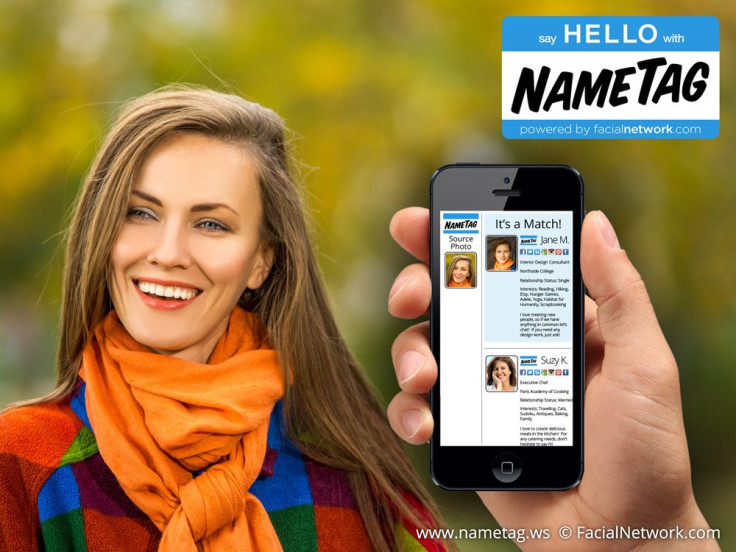Facial Recognition Apps, Like NameTag, Could Lead To A Situation Like The ‘War On Terror’

NameTag, a facial recognition app that lets users match a face to their digital identity, and while these apps are still in their infancy there is some cause for concern over privacy and security. With all new technology comes some risk and for researchers at Iowa State University the best way to ensure safety is through accountability.
Brian Mennecke, associate professor of information systems at ISU, analyzes the risks of using facial recognition apps and some advantages of the new technology. For individuals, there needs to be a greater awareness of what is included in their digital profiles, such as social media posts and publicly available information, and for businesses there is a new opportunity for consumer engagement.
According to the study’s abstract, “Facial recognition and video analytic technologies being applied in public digital signage displays and on social networks like Facebook capture and create an embodied biometric database that is essentially an avatar-like profile that will be used for marketing products and supporting consumer applications.” The research, published in the journal Business Horizons, was led by Mennecke and co-author Anicia Peters, also from ISU.
The study coins the term “mavatars,” or marketing avatars, in regards to these new digital representations of individuals created by facial recognition apps like NameTag. That facial app, developed by FacialNetwork.com, lets users scan a face and compare it with dating site profiles, social media posts and even sex offender registries. All of this data would be combined in an easy-to-navigate profile of strangers, friends and dates.
Mennecke says facial recognition apps developed by businesses can be held accountable but other apps may not have to worry about to worry about answering to angry consumers or their board. He likens bad facial recognition apps to the “war on terror” as there is no clear good or bad side and there is no way to isolate the problem.
NameTag has already drawn some criticism as opponents argue such apps harm social relationships as it creates a sense of distrust while there are also concerns of accuracy and database management. Mennecke said in a statement, “The challenge is that when these applications are released for public use, the potential for abuse is great because it will be virtually impossible to opt out.”
Facial recognition apps are also being developed by companies to increase potential sales. As the New York Times points out, businesses are developing facial recognition apps to recognize high-spending shoppers which could lead to personalized deals via email or text.
© Copyright IBTimes 2025. All rights reserved.





















